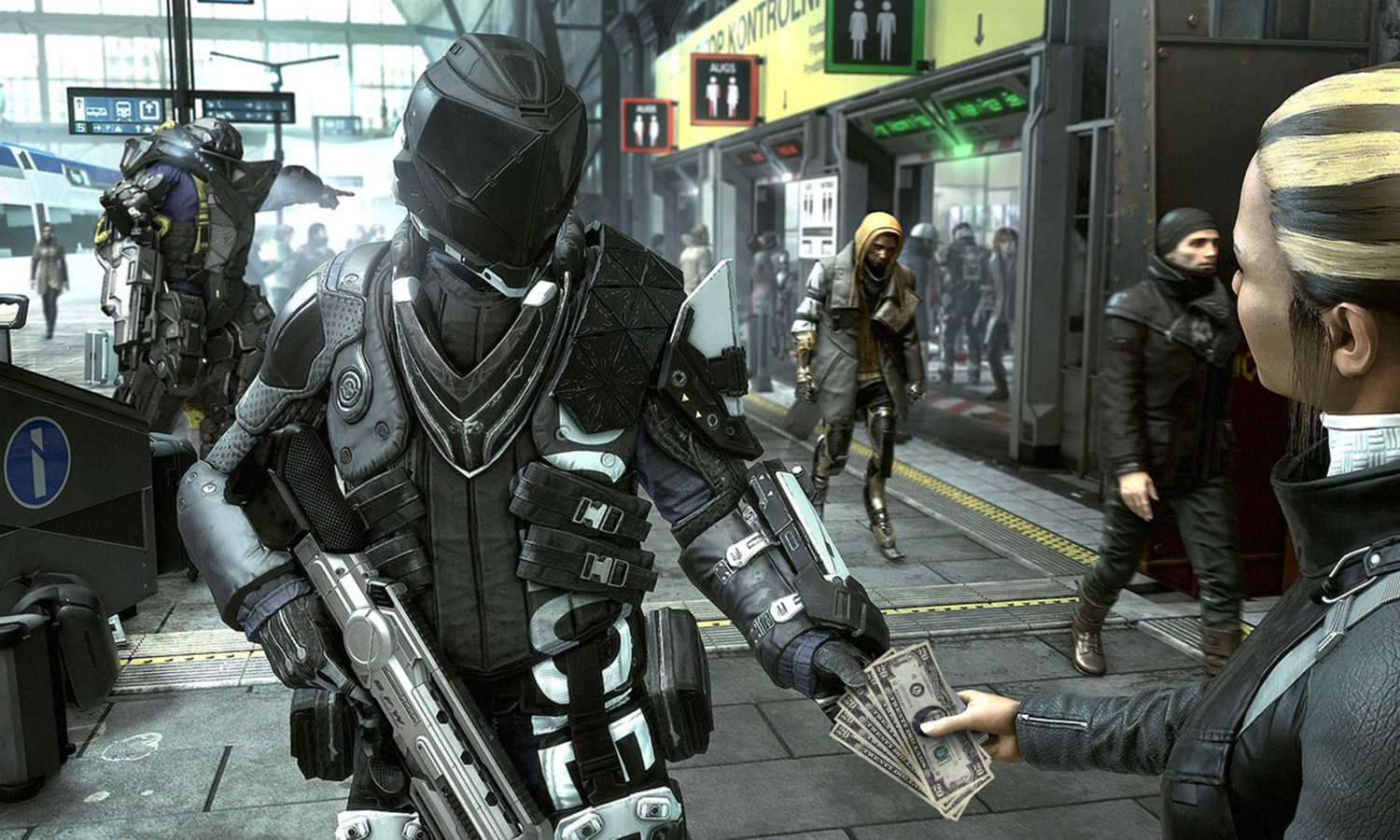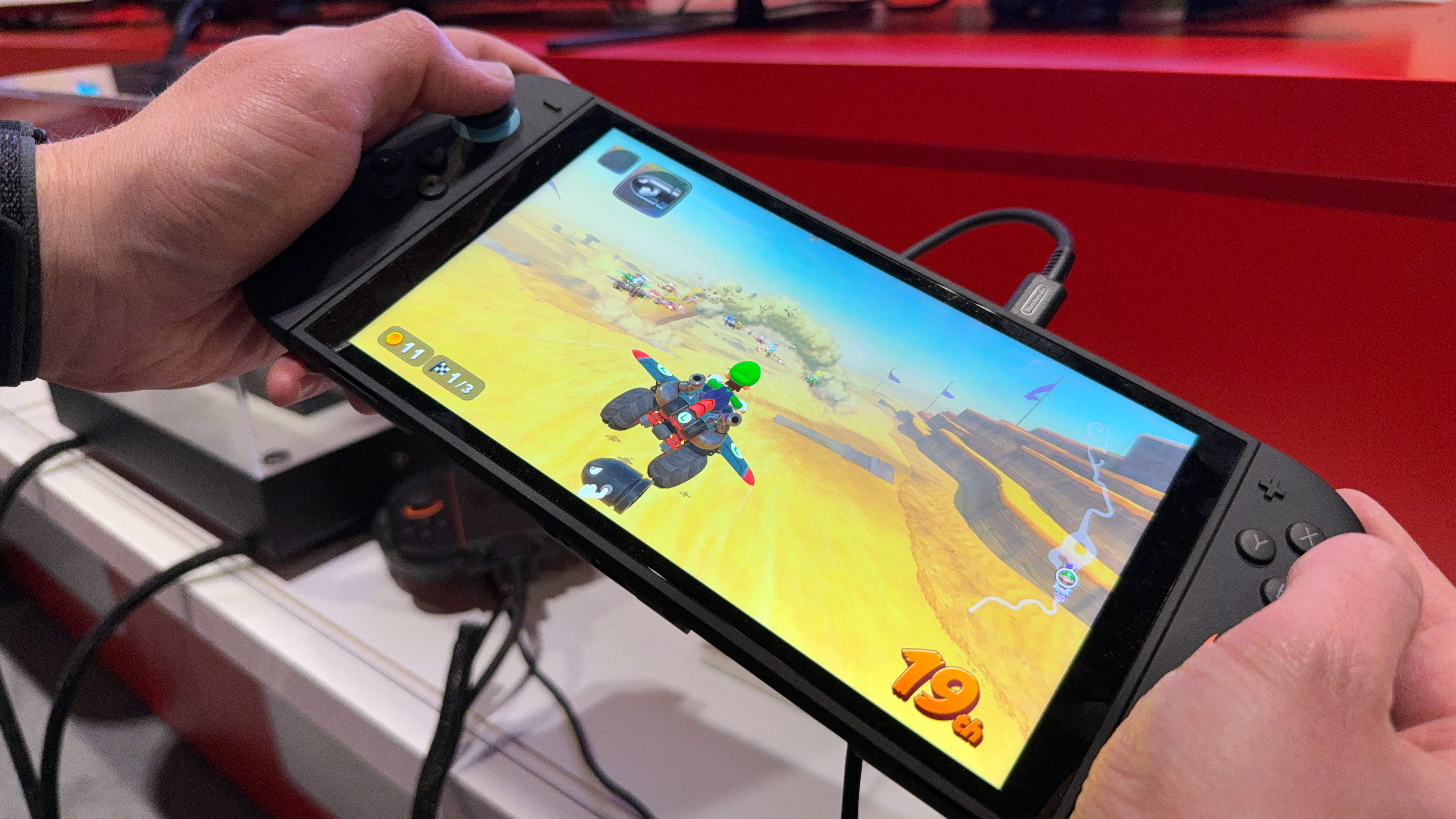Why $60 Games Seem More Expensive Than Ever
Jen MacLean, executive director of the IGDA, has some big ideas about the future of gaming.
SAN FRANCISCO -- Most big-budget games today cost $60. That’s not so much, considering that the price hasn’t kept pace with inflation over the past decade.

But when you factor in microtransactions, loot boxes and the “games-as-a-service” business model, it can feel much more expensive to play a “complete” game than it did just a few years ago. Are gamers demanding too much content for too little money, or are developers purposely withholding stuff we used to get for free?
The answer, perhaps not surprisingly, is “a little bit of both.”
At GDC 2019, I sat down with Jen MacLean, executive director of the International Game Developers Association (IGDA). In a wide-ranging interview, we talked about everything from Google Stadia to indie-versus-AAA gaming to developer unionization.
The theme we kept coming back to, though, was that gaming is a much more diverse hobby than the average player -- or developer -- seems to think. And if both developers and players can learn to be a little more inclusive and patient, it may help everyone find the right games at the right prices.
MORE: Best of GDC 2019: The 10 Coolest Games and Gadgets
Big-budget extravagance
Sign up to get the BEST of Tom's Guide direct to your inbox.
Get instant access to breaking news, the hottest reviews, great deals and helpful tips.
Ten years ago, if you bought a brand-new AAA game on the Xbox 360 or PS3, you were buying a more-or-less complete package. Perhaps there would be some small DLC packs, or a larger expansion later on down the line, but $60 would get you everything you needed to play the game, start to finish.
Today, things are a little different. Sixty dollars is more like an entry fee; to get the full package, you’ll need to keep paying, little by little, for everything from cosmetic items to vital chapters of the story. But this is not necessarily because developers are greedy; it’s because they really, really need the money.
“If you just look at the math behind AAA development right now, it doesn’t work well,” MacLean said. “We’ve seen AAA budgets growing at a very fast rate. When you look at the rate of increasing cost per [megabyte] of content, it should terrify anyone making AAA games. At the same time, when you look at the initial cost of purchasing games, it’s decreased over time when you factor in inflation.”
In other words, $60 today is not equal to $60 in 2009, which would be about $70 today. And even if it were, the average AAA game costs more to make now. Loot boxes, DLC and games-as-a-service are all ways to offset that cost. But just because developers make extra content doesn’t necessarily mean that players will buy it.
“If players don’t purchase those additional services, increasing costs and decreasing revenue per player [is] a big problem,” MacLean said. “While we need to make money to get paid ... we also need to make sure that players feel valued ... Players understand that at the end of the day, [they] have power.”
The conventional wisdom is that if a player doesn’t like loot boxes or microtransactions, he or she simply shouldn’t buy them. However, MacLean took that proposition a step further.
“If players don’t like loot boxes, they shouldn’t play a game that has them,” she said.
That, she added, will send a clear message to the developers much more effectively than simply eschewing a small part of the game.
Gaming for everyone
The good news is that now is a better time than ever to potentially ditch AAA games. The indie boom and the nascent resurgence of mid-budget studios make it possible to pay less money for games that are more suited to your individual tastes.
“We get caught up thinking of AAA games as ‘gaming,’” MacLean said. “But look at games like Stardew Valley. That’s an amazing experience ... so far outside of what we consider the traditional games industry. In a lot of ways, it gives me hope. There’s so much innovation out there; there are so many experiences out there that we haven’t tapped.
“There’s such a big potential audience out there who might love playing Stardew Valley, but would never play Kingdom Hearts III. I would hate to see us lose sight of those potential customers, because I think they matter. The healthiest game industry is diverse not only in terms of demographics, but in terms of business models and in terms of the player experiences we create.”
Again and again, MacLean came back to the point that gaming is not a one-size-fits-all proposition, and that the average gamer’s tastes have changed over time, particularly as that average gamer gets older.
“There is a bigger difference between the behavior of men [at] age 18 and men [at] age 50 than [between] men and women at any age,” she said. “As a game development community, our core demographic is changing. We need to start thinking very hard about what they find important and valuable in an experience.”
In other words, the battle of the sexes is old news; retro vs. new is the next big conversation we need to have.
Google and the future of gaming
MacLean didn’t have any insider info about Google Stadia; she seemed to share the same hopes and concerns as the rest of us.
“It’s interesting to see Google delivering a tech platform, but at the end of the day, it’s up to game developers to determine which features they want to use, and how it best impacts the player experience,” she explained. “I’m a huge RPG fan. If you were to watch someone streaming and trying to jump into the middle of an RPG without going through character progression, combat and inventory management, it might not be a great experience.”
More important, though, was that Stadia could represent yet another step away from traditional game ownership. Not having to download games could be convenient, but it means you’ll be completely dependent on Google to access them -- and that access may not last forever.
“It ties into what game ownership means,” she said, “but subscription services for games are coming from a number of providers.”
In a few more years, after all, owning games might be as quaint as buying CDs or DVDs.
Talking to each other
MacLean’s most important message, though, had very little to do with video games themselves. Rather, it was all about how gamers, developers and journalists can all be a little more understanding toward one another, since we’re all in this primarily for the same reasons.
“I would love to see both communities exercise more empathy,” she explained. “There isn’t any kind of deliberate effort [on the part of developers] to defraud players. It’s just really, really, really hard, and we’re all only human. We’re doing the best we can, but we are not perfect. I wish game developers would understand that players have extraordinarily different needs.
“I’m also really glad to see some games journalists holding companies accountable for bad decisions. I think that’s a really important part of what games journalism could be and should be. I would love to see games journalists remember that developers are people, [especially] covering layoffs, which are extraordinarily disruptive and emotionally difficult. Understand that what might be a scoop that drives eyeballs might be very hard for someone who’s literally going through a layoff.”
So, if developers can be a little more transparent with players, and players a little more patient with developers, will it make gaming a radically better hobby? MacLean seems to think so.
“Game development is hard, but as a community, this is such a supportive and helpful group of people who want to do great things, who truly want to change the world, who want to make great art. And our power comes in lifting each other up.”
Be sure to check out our GDC 2019 hub page for all of the latest gaming news and hands-on impressions straight out of San Francisco.
Marshall Honorof is a senior editor for Tom's Guide, overseeing the site's coverage of gaming hardware and software. He comes from a science writing background, having studied paleomammalogy, biological anthropology, and the history of science and technology. After hours, you can find him practicing taekwondo or doing deep dives on classic sci-fi.

